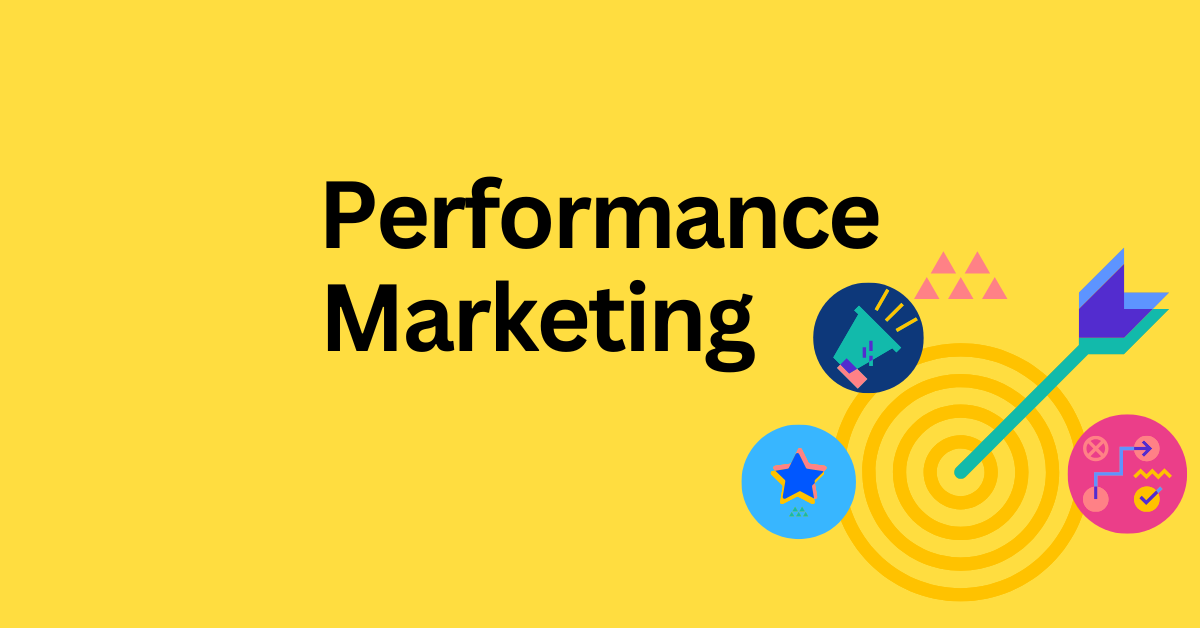In the shifting digital marketing landscape, businesses are always on the lookout for effective ways to reach the maximum return on investment. One of the major approaches that caught a significant pull in recent years is performance marketing. This blog will explain what performance marketing is, how it works, the essential elements, and why it’s important to businesses of all sizes.
What is Performance Marketing?
Performance marketing is that method of digital marketing in which the advertiser or marketer pays for specific actions users take after connecting with an ad, rather than by paying for placements or impressions. This can be a click, a lead, conversion, or even a sale. Generally speaking, it shifts focus away from the traditional means of advertising payment that functions from a pay-before-results model to a measurable results-based model.
How Does Performance Marketing Work?
Data defines the heart of performance marketing. In brief, how it works is as follows:
1. Goal Setting: Advertisers define clear objectives that they should be achieved, such as lead generation, website traffic, or a number of sales increases.
2. Channel Selection: For every chosen goal, the marketer then determines the best channels for his campaigns. The channels usually in performance marketing include:
- Affiliate Marketing: You partner up with affiliates to sell your products, and they earn a commission each time a sale is generated.
- SEM (Search Engine Marketing): Paid search ads targeted at specific keywords with targeted Google Ads to send the right traffic to your website.
- Social Media Advertising: Targeted ads on Facebook, Instagram, and LinkedIn, among others.
It includes the display advertisement that targets potential interest using banner advertisements on many websites.
3. Tracking and Measurement: Tracking tools and analytics form a very crucial component in performance marketing as they measure the performance of the campaigns. Different metrics such as CTR, conversion rates, and CPA are studied to determine the campaign effectiveness.
4. Optimization: Through the data gathered, marketers adjust strategy in real-time so as to optimize ad placements, targeting, and messaging for performance marketing to be better enacted.
Overview of Performance Marketing
1. Targeting: Well, quite seriously does performance marketing take targeting through behavior, demographics, and interests in users. This ensures that the right audiences see these ads to increase the chances of a conversion.
2. Analytics: Basically, performance marketing relies on data analysis. Google Analytics, for example, can be used by the marketers to know users' behavior, campaign effectiveness, and ROI.
3. Attribution: A strategy of determining which touchpoints or channels make a conversion is important in performance marketing. It makes use of multi-touch models in order to determine the effectiveness of different marketing efforts.
4. Continuous Improvement: Performance marketing is a continuous process. Marketers should keep analyzing the data, testing different approaches, and refining their strategies to bring about the highest potential results.
Why Performance Marketing Matters
1. Cost-Effective: Advertising only pays for specific actions ensures performance marketing is often more cost-effective than traditional forms of advertising. Companies may allocate budgets more efficiently and focus on those channels with measurable results.
2. Measurable Outcome: One of the real benefits is that performance marketing is data and analytics dependent. Campaigns can be easily measured in real-time, providing easy ways to measure return on investment and defend marketing spend.
3. Agility: Performance-based campaigns can adapt quickly through performance data. It's possible for a business to pivot and change its strategy swiftly in response to fluctuating market conditions or customer preferences.
4. Easy Targeting: Through performance marketing, the business will be able to reach its target audience and helps in reaching potential customers; hence the probability of conversion will also increase and will help build a more connected customer base.
5. Scale Up/Down: The performance-based marketing campaign will always scale up and down as and when needed based on performance and budget. This is a great option for start-up businesses to enormous enterprises.
Conclusion:Then, performance marketing is actually the new future of marketing. It may be considered as a dimension that focuses on measurable results and data-driven decision-making to maximize ROI while achieving marketing objectives in a better way compared to other marketing strategies. Now, with each marketing dollar counting, embracing performance marketing is not just the latest fashion but quite an indispensable thing for businesses to succeed in the digital world. Whether it is a small business or a large corporation, performance marketing could bring more gigantic growth and success opportunities in this competitive market today.




